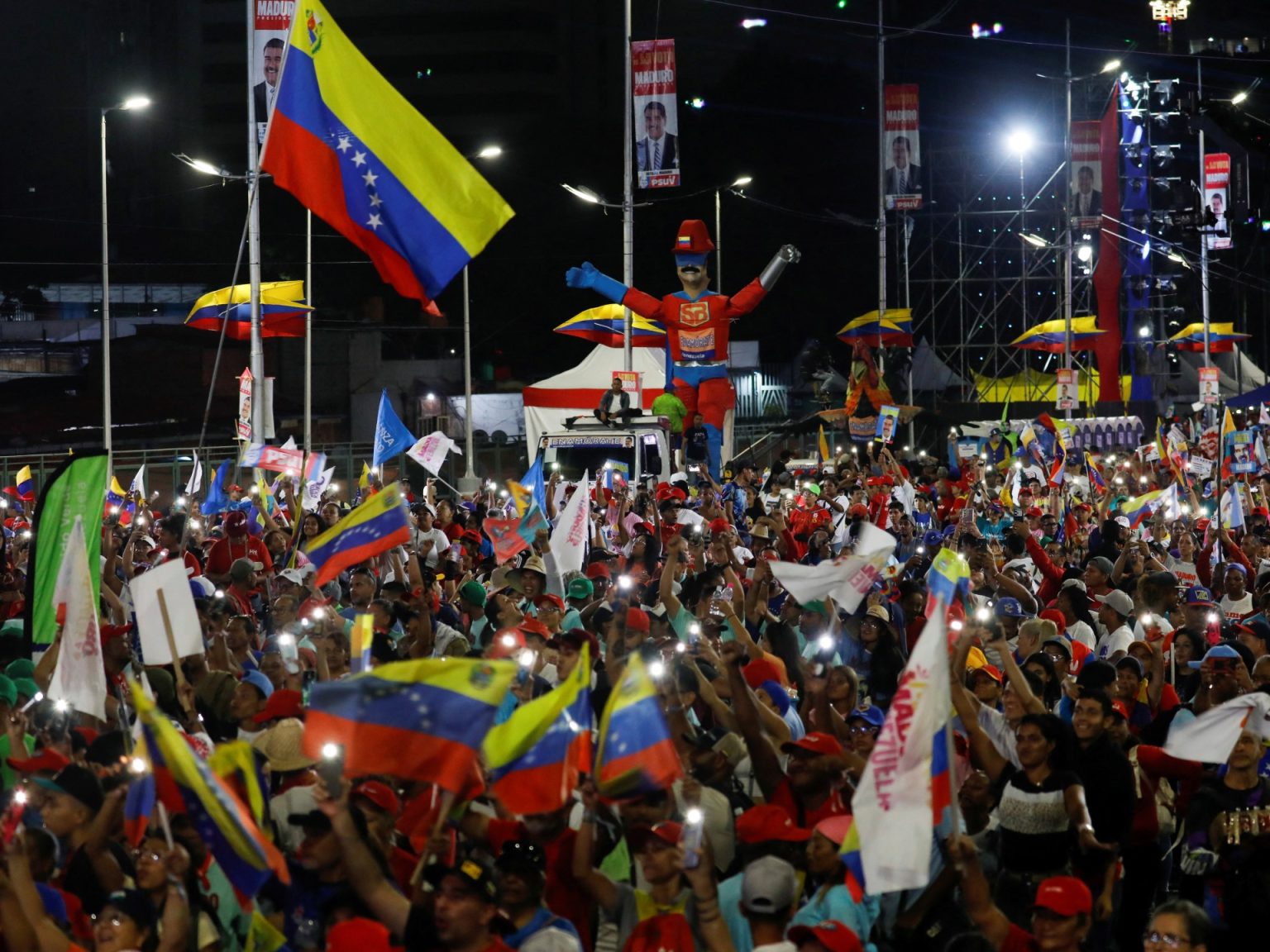Life in Caracas, Venezuela has been difficult for years, with high food prices, economic crisis, and political turmoil. Ahead of the upcoming presidential election, there is a sense among many, including private security guard Rodrigo, that change may be necessary. The election falls on the birthday of Hugo Chavez, a controversial figure who was celebrated as a champion of the poor during his time in power. His successor, Nicolas Maduro, is facing off against opposition candidate Edmundo Gonzalez Urrutia, with polls showing Gonzalez in the lead.
Maduro has faced accusations of government interference and opposition parties boycotting previous elections. Despite this, he has stated that he will recognize the result of Sunday’s ballot. Many, like Rodrigo, are unsure of what the future holds for Venezuela, even if Gonzalez were to win. Chavez was able to use high oil prices to fuel economic growth and social programs, reducing poverty and unemployment during his tenure. However, Maduro has seen the country experience an economic meltdown, with output contracting by 70 percent since 2014 and millions of Venezuelans leaving in search of work.
The state of disorder in Venezuela has been described by the IMF as the single largest economic collapse for a non-conflict country in half a century. Maduro has blamed US-led sanctions for the country’s plight, while critics see corruption as a major factor. Venezuela’s heavy reliance on oil exports has left the economy vulnerable to fluctuations in oil prices and foreign currency shortages. Hyperinflation has led to import compression, causing shortages in supermarkets and pharmacies and prompting many Venezuelans to leave the country.
Venezuela’s debt crisis is another major challenge facing the country, with approximately $92 billion owed in commercial debt alone. A debt restructuring will likely be necessary for the next government to kickstart growth. However, negotiations with creditors may involve austerity measures that could further impact public spending on essential services. The US sanctions have had a significant negative impact on Venezuela’s economy, complicating efforts to restructure debt and reinsert the country into global financial markets.
The Biden administration has taken a different approach to sanctions on Venezuela, with a focus on political guarantees such as free and fair elections and the release of detained US citizens. Despite some easing of sanctions under the Barbados Agreement, recent actions by Maduro, such as blocking political rivals from running and engaging in territorial disputes, have led to a reinstatement of US sanctions. The impact of these sanctions, along with the overall economic crisis, may influence Venezuelan voters as they head to the polls in the upcoming election.


